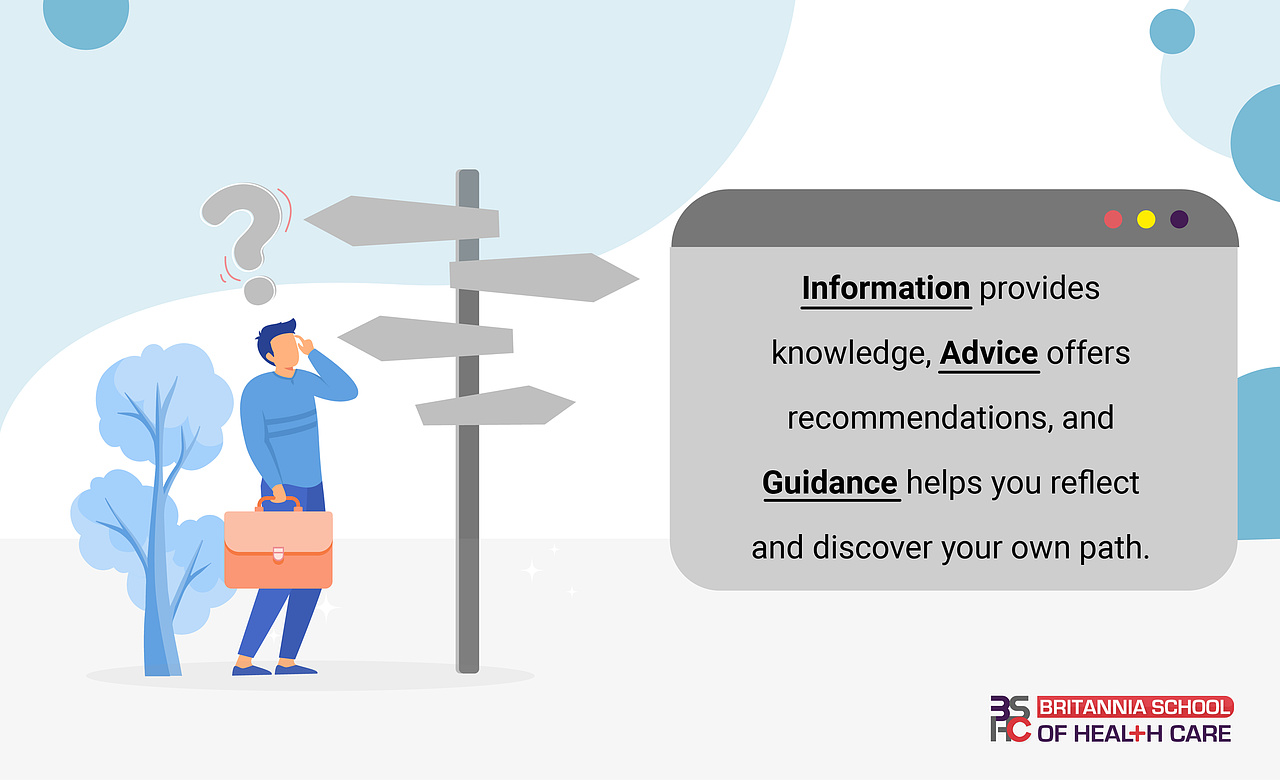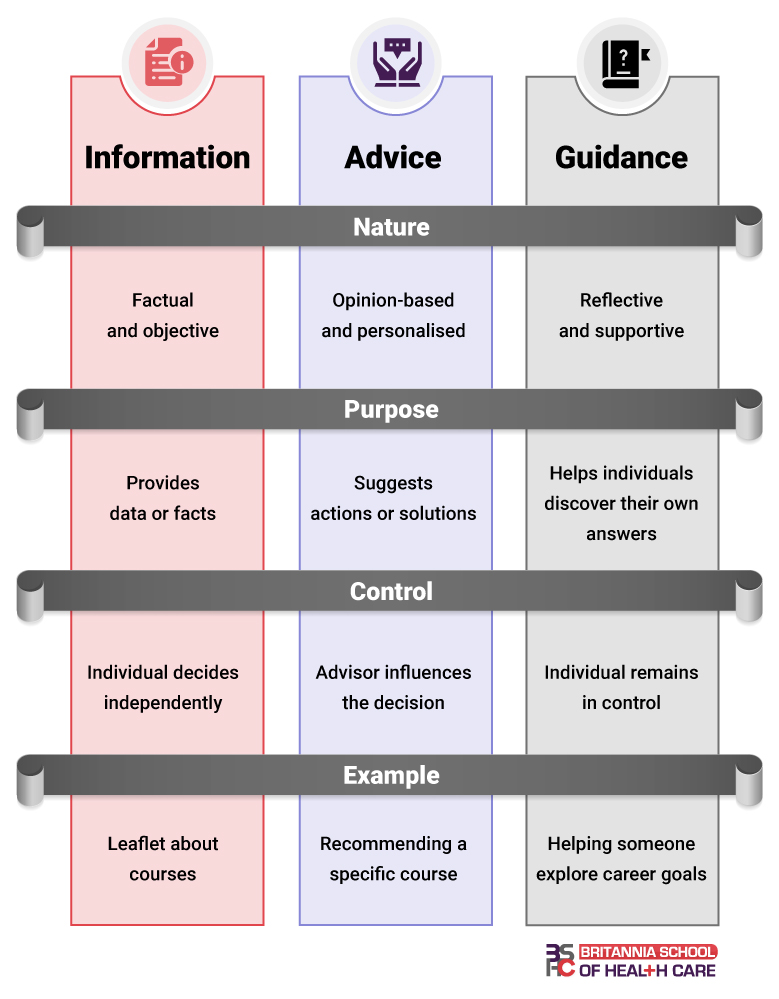Have you ever been unsure whether you needed advice or guidance? Every day, people seek support to make better choices whether in education, career development, or personal growth. That support often comes in the form of information, advice and guidance, While they might sound similar, each plays a unique role in helping individuals make decisions, solve problems, or plan their future. Understanding how they differ is key to making informed decisions and finding the support that truly meets your needs.
In this blog, we will explore what each term means, highlight their differences, and explain why all three are important.

What is Information?
Information is simply the facts, data, or resources provided without any interpretation or personal recommendation.
What is Advice?
Advice goes a step further. It not only gives you the facts but also includes someone’s opinion or recommendation about what you should do. Unlike information, advice reflects a certain degree of judgement and is tailored to the individual’s situation.
What is Guidance?
Guidance is broader and more holistic. It focuses on supporting individuals in exploring their thoughts, feelings, values, and circumstances to help them make informed decisions. Instead, guidance encourages reflection and self-discovery, empowering individuals to find the best path for themselves.
Key Differences- Information, Advice & Guidance (IAG)

Link to Real-World Settings
Understanding the difference between information, advice, and guidance becomes much clearer when we see how they work in real life.
🏥 Healthcare
A care home worker notices that John, a resident recovering from surgery, is unsure how to stay active without overstraining himself. The worker first provides information by explaining the physiotherapy schedule, safe exercise options, and dietary plans available in the care home. Next, the worker offers advice, suggesting gentle daily walks with staff supervision to build strength safely. Still uncertain, John receives guidance when the worker discusses his personal comfort levels, health goals, and preferences, helping him decide on the most suitable routine. With this support, John feels confident in managing his recovery while maintaining his independence.
Exploring Information, Advice and Guidance Through Care Home Practice
Information:
✅This is factual and objective, giving John knowledge of what is available without telling him what to do.
Advice:
✅This is a recommendation based on the worker’s experience and understanding of his condition.
Guidance:
✅This supports self-reflection and decision-making, allowing John to take ownership of his recovery plan.
Why are Information, Advice & Guidance Important?
Understanding the difference is crucial in areas such as healthcare, career services, education, and professional development. Each plays a complementary role in helping people make informed, confident, and appropriate decisions.
Here’s why:
- In Healthcare – Patients may receive information about treatments, advice on lifestyle changes, and guidance to make decisions about care options.
- In Careers – Job seekers benefit from labour market information, tailored advice about CVs or interviews, and guidance to align career choices with personal aspirations.
- In Education – Students need accurate information about courses, advice on suitable pathways, and guidance to reflect on long-term goals.
Final Thoughts
In every stage of life whether choosing a career, managing our health, or making everyday decisions we encounter information, advice, and guidance. Each has its own value: information equips us with knowledge, advice points us in a direction, and guidance helps us find the path that truly fits who we are. The key is recognising what kind of support we need in any given moment. In the end, the most effective decisions are those made with the right balance of facts, recommendations, and personal reflection.

